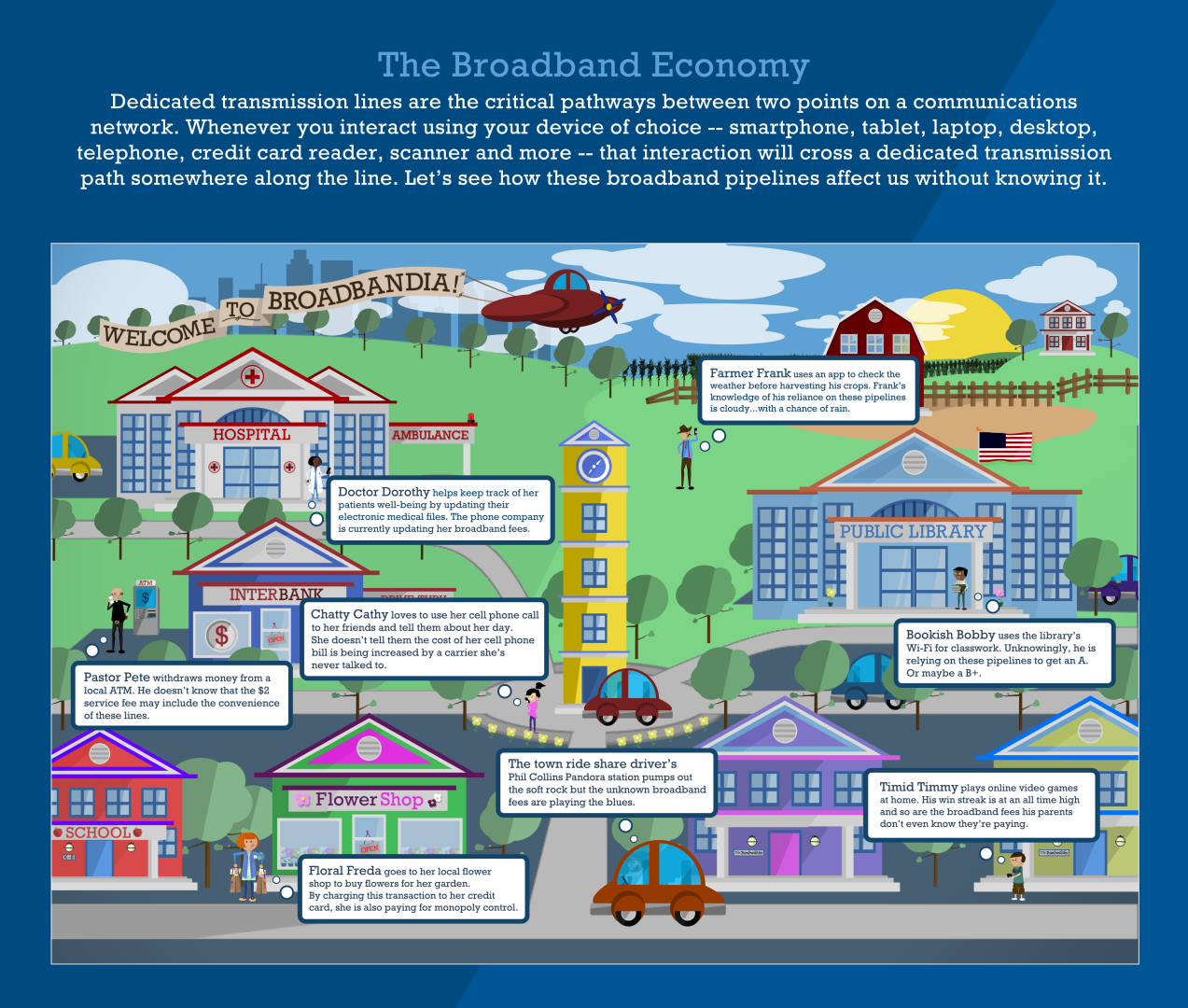At Urging of Competify Coalition of Telecom Competitors, FCC Launches Inquiry of Broadband Business Services
WASHINGTON, October 19, 2015 – The Federal Communications Commission on Friday announced that it had launched an investigation into the broadband pricing plans of local exchange carriers AT&T, CenturyLink, Frontier and Verizon Communications for so-called “special access services” of business data.
WASHINGTON, October 19, 2015 – The Federal Communications Commission on Friday announced that it had launched an investigation into the broadband pricing plans of local exchange carriers AT&T, CenturyLink, Frontier and Verizon Communications for so-called “special access services” of business data.
A coalition of competitive carriers and non-profit organizations dubbed Competify has been urging the inquiry, and praised Friday’s order by the agency’s Wireline Communications Bureau.“The incumbents use inherently anticompetitive lock-up plans – which only an entity with immense market power could impose – to charge businesses and anchor institutions excessive access rates that harm competition, restrain the deployment of competitive facilities, and impede the transition to next-generation services,” according to a statement released by the group.
Among the companies supporting the campaign include BT, Level 3, Sprint and XO Communications, together with a range of non-profit organizations.
The US Telecommunications Association struck back. Said association president Walter McCormick: “At the very time the commission is expressing concern over the growing dominance of cable in the overall broadband marketplace, and acknowledging that burdensome legacy regulation of telecom companies is misdirecting investment and hindering competition, it launches an old-fashioned ‘tarriff’ investigation of the only competitors in the marketplace who are required to operate under last century’s antiquated rules.”
Specifically, according to the order launching the investigation, the inquiry concerns “only a subset of specialized telecommunications services that continue to operate under tariffs,” namely time-division multiplexed (TDM) business data services such as DS1 and DS3 channel terminations under dedicated copper-based circuits.“While competitors continue to expand their market presence by building IP [internet protocol]-based facilities or extending purchased TDM based facilities to additional buildings, preliminary results from the Commission’s data collection show that incumbent LECs remain the sole facilities-based provider of TDM-based special access services to a majority of business locations that demand or are likely to demand business data services nationwide.”Rep. Anna Eshoo, D-Calif., and Rep. Mike Doyle, D-Penn., applauded the FCC’s investigation “that major telecom companies in the U.S. have been stifling competition in the $40 billion a year market for special access.”“For too long, companies that utilize special access service have alleged that these services are only offered with unreasonable conditions attached, aimed at driving competitors out of this space,” wrote the representatives.Other articles on the inquiry and Comptetify:
Multichannel News: http://www.multichannel.com/news/fcc/competify-launches-broadband-competition-campaign/394429
Drew Clark is the Chairman of the Broadband Breakfast Club. He tracks the development of Gigabit Networks, broadband usage, the universal service fund and wireless policy @BroadbandCensus. He is also Of Counsel with the firm of Best Best & Krieger LLP, with offices in California and Washington, DC. He works with cities, special districts and private companies on planning, financing and coordinating efforts of the many partners necessary to construct broadband infrastructure and deploy “Smart City” applications. You can find him on LinkedIN, Google+ and Twitter. The articles and posts on BroadbandBreakfast.com and affiliated social media are not legal advice or legal services, do not constitute the creation of an attorney-client privilege, and represent the views of their respective authors.









Member discussion